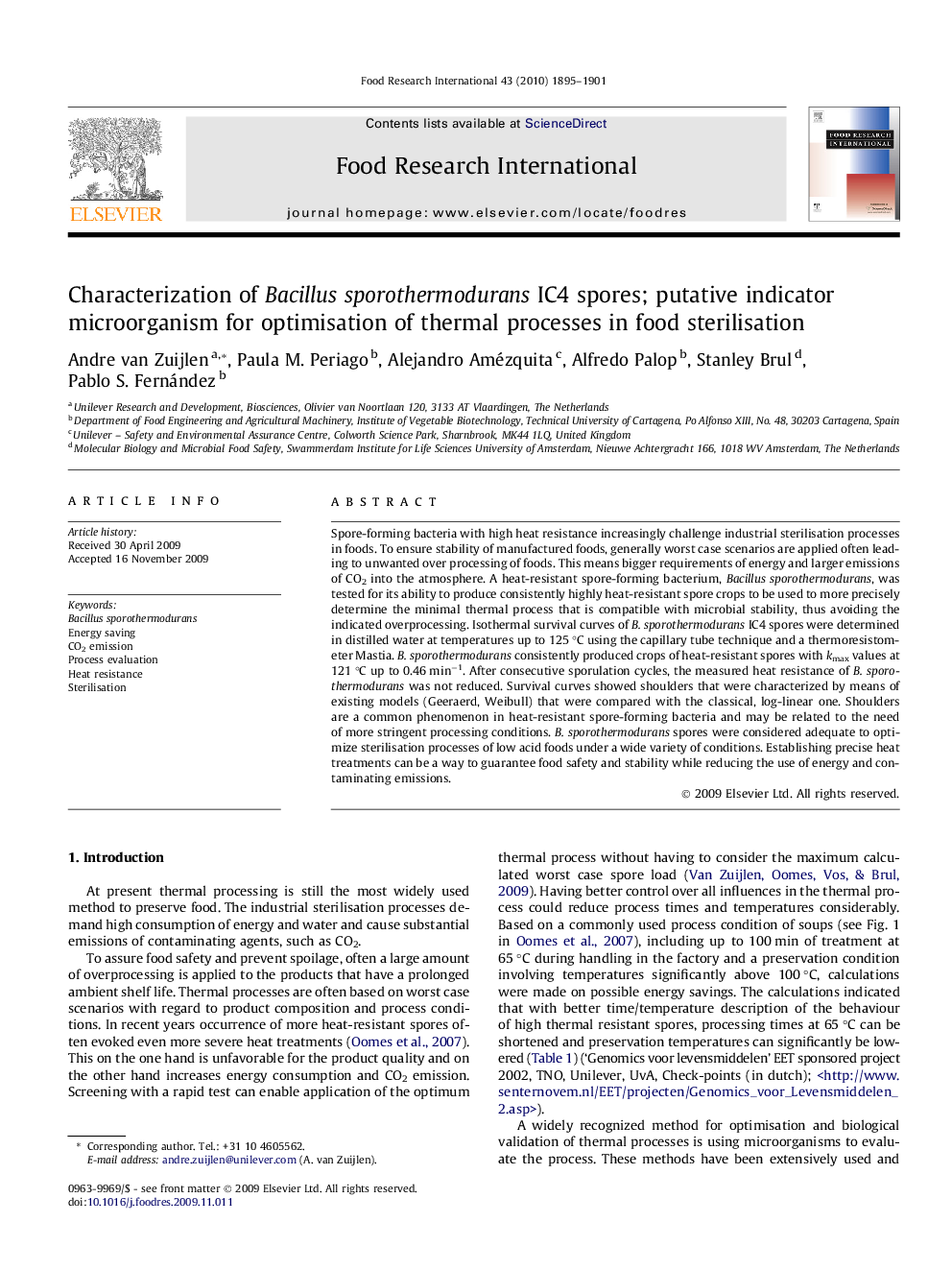| Article ID | Journal | Published Year | Pages | File Type |
|---|---|---|---|---|
| 4562165 | Food Research International | 2010 | 7 Pages |
Spore-forming bacteria with high heat resistance increasingly challenge industrial sterilisation processes in foods. To ensure stability of manufactured foods, generally worst case scenarios are applied often leading to unwanted over processing of foods. This means bigger requirements of energy and larger emissions of CO2 into the atmosphere. A heat-resistant spore-forming bacterium, Bacillus sporothermodurans, was tested for its ability to produce consistently highly heat-resistant spore crops to be used to more precisely determine the minimal thermal process that is compatible with microbial stability, thus avoiding the indicated overprocessing. Isothermal survival curves of B. sporothermodurans IC4 spores were determined in distilled water at temperatures up to 125 °C using the capillary tube technique and a thermoresistometer Mastia. B. sporothermodurans consistently produced crops of heat-resistant spores with kmax values at 121 °C up to 0.46 min−1. After consecutive sporulation cycles, the measured heat resistance of B. sporothermodurans was not reduced. Survival curves showed shoulders that were characterized by means of existing models (Geeraerd, Weibull) that were compared with the classical, log-linear one. Shoulders are a common phenomenon in heat-resistant spore-forming bacteria and may be related to the need of more stringent processing conditions. B. sporothermodurans spores were considered adequate to optimize sterilisation processes of low acid foods under a wide variety of conditions. Establishing precise heat treatments can be a way to guarantee food safety and stability while reducing the use of energy and contaminating emissions.
